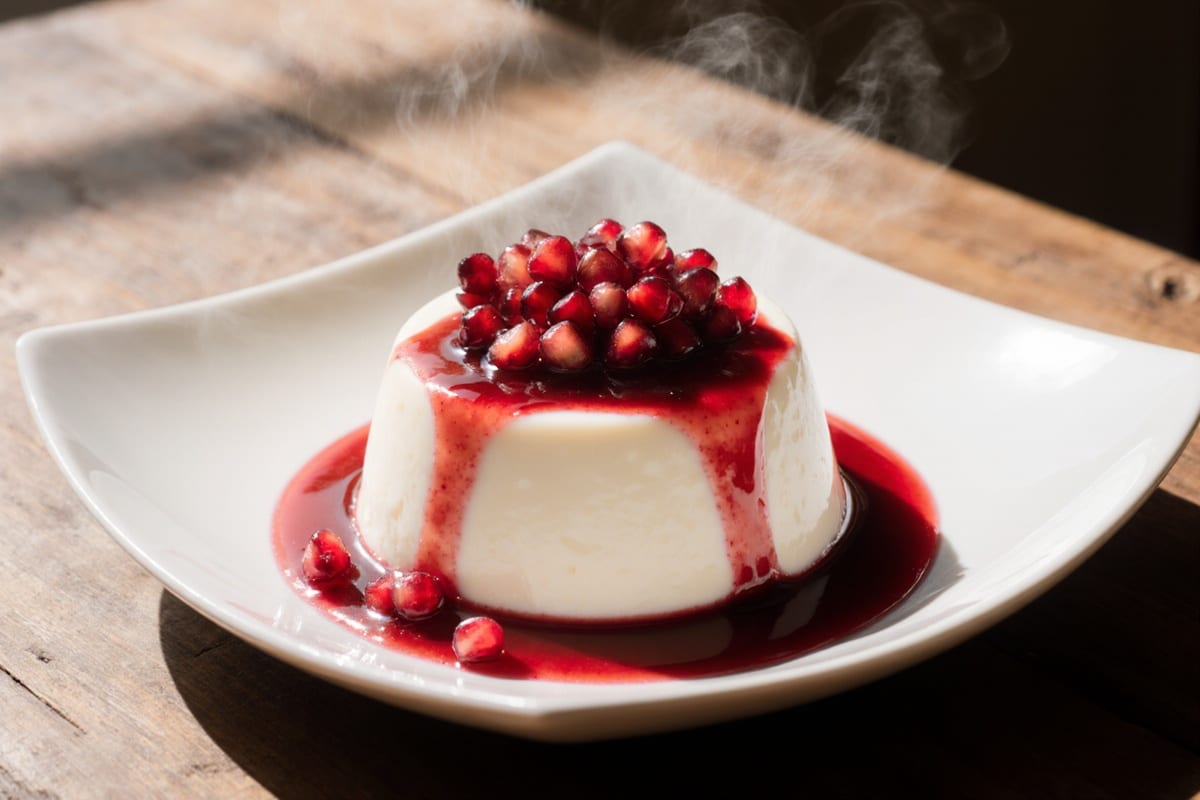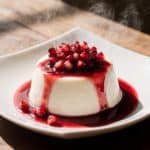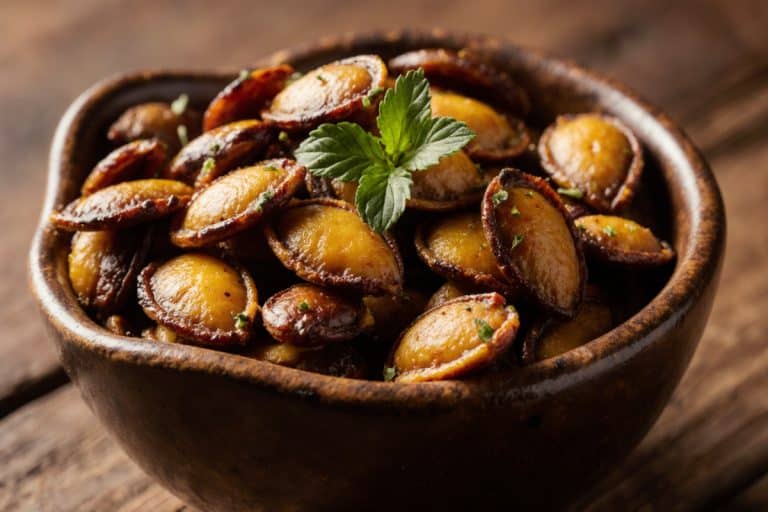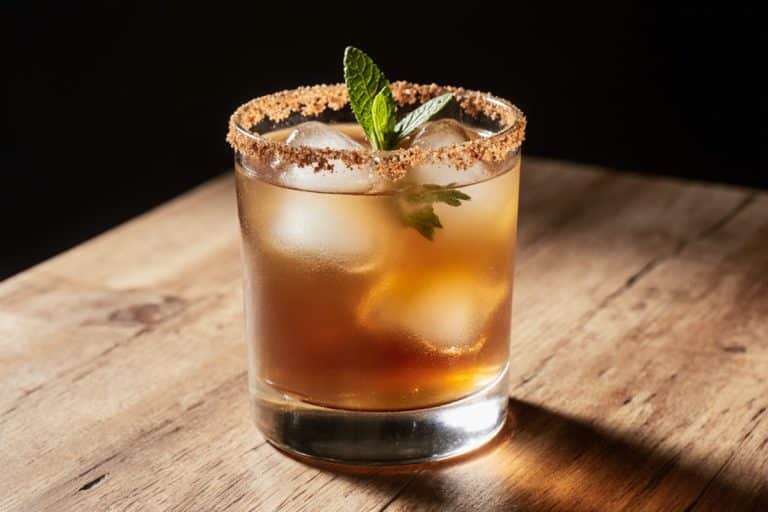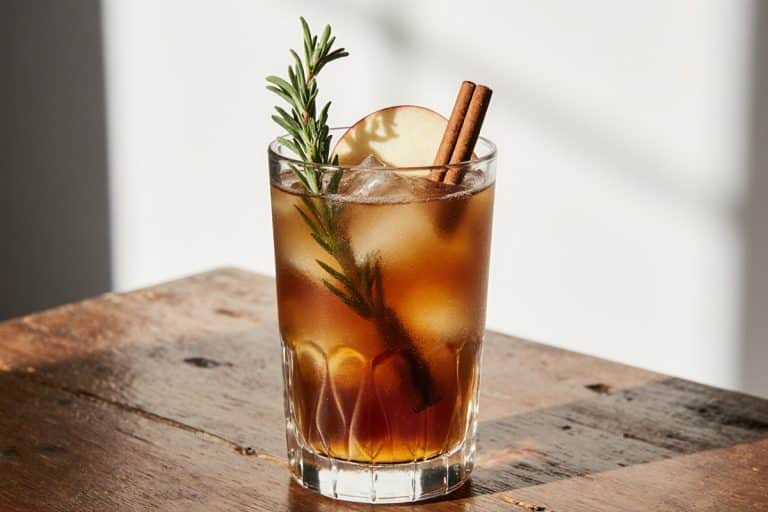Gordon Ramsay’s Panna Cotta with Pomegranate Glaze
When I first heard Gordon Ramsay talk about pomegranate, I thought it was just another fancy ingredient chefs throw around to sound impressive. Boy, was I wrong. This ruby-red powerhouse isn’t just a garnish—it’s a culinary weapon that can transform your cooking from bland to brilliant. As someone who’s spent years battling kitchen disasters, I can tell you that mastering pomegranate is like having a secret flavor artillery. Whether you’re looking to cut through rich game meats or elevate a simple dessert, these techniques will save you time, impress your guests, and make your dishes sing. Forget complicated recipes that leave you stressed—I’m about to break down Ramsay-style pomegranate magic that’s practical, delicious, and surprisingly simple.
Panna Cotta with Pomegranate Glaze
Ingredients
Equipment
Method
- Bloom gelatin leaves in cold water.
- Heat heavy cream, sugar, and vanilla in a saucepan to just below boiling.
- Once heated, dissolve the bloomed gelatin completely in the cream mixture.
- Pour the mixture into molds and chill for 30-60 minutes until set.
- For the glaze, reduce fresh pomegranate juice with additional sugar in a saucepan until it reaches syrupy consistency.
Nutrition
Notes
Love this recipe?
Give us 5 stars and comment!Unveiling Gordon Ramsay’s Pomegranate Culinary Magic
Pomegranate’s Role in Ramsay’s Cooking
Pomegranate isn’t just a fruit in Ramsay’s kitchen—it’s a secret weapon. This ruby-red gem adds a zingy brightness and rich depth to both sweet and savory dishes. Ramsay uses pomegranate to cut through rich meats and elevate simple desserts into restaurant-quality delights.
Ramsay Signature Techniques Explained
Ramsay’s technique with pomegranate focuses on precision and intensity. He often reduces pomegranate juice to create concentrated glazes, uses seeds for textural contrast, and incorporates molasses for a tangy kick. The goal is to bring out maximum flavor without overpowering the main ingredient.
A Step-by-Step Ramsay Style Recipe
Get ready for a straightforward approach to cooking. You can expect exact measurements, honest tips, and results that could impress anyone. Ramsay’s recipes call for attention to detail and no room for mistakes.
Nutritional Powerhouse: Pomegranate Insights
Nutrition per 100 g
Each 100g serving packs a healthy punch: 150-180 calories, 3-4g of protein, and 12-15g of carbohydrates. It’s not just tasty—it’s a nutritious food that adds significant value to your meals.
Antioxidants, Vitamins & Minerals
Pomegranates are a nutritional powerhouse. They’re rich in vitamin C, potassium, and antioxidants that work against inflammation. Pro tip: The seeds contain more nutrients than the juice, so don’t toss them.
Pros & Cons of Pomegranate Dishes
Pros include fantastic flavor complexity and health perks. On the downside, they can be tricky to prep and a bit pricey. Choose wisely and learn how to prepare them correctly.
Signature Dish: Panna Cotta with Pomegranate Glaze
Typical Baseline Ingredients
You’ll need heavy cream, gelatin leaves, sugar, vanilla, and fresh pomegranate juice. Quality matters—don’t skimp on ingredients. Go for full-fat cream and fresh, pure pomegranate juice for the best outcome.
Step-by-Step Method
Start by blooming the gelatin in cold water.
Next, heat the cream, sugar, and vanilla to just below boiling.
Dissolve the gelatin completely into the warm mixture.
Pour it into molds and chill for 30-60 minutes.
For the pomegranate glaze, reduce the juice with sugar until it becomes syrupy.
Ramsay Tips for Perfect Texture
Temperature is everything. Keep the dairy mixture below boiling. Whisk in the gelatin gently. Allow the panna cotta to set with a slight wobble. Cool the glaze before pouring to prevent melting the surface.
Avoiding Pomegranate Recipe Disasters
Overheating Cream
If you overheat the cream, it ruins the texture. Use medium heat, stir constantly, and stay vigilant. If it starts to separate, that’s a fail.
Incomplete Gelatin Dissolution
Lumpy gelatin can spoil your dish. Bloom it properly in cold water, squeeze out the excess, and whisk it gently into the warm mixture. No shortcuts.
Glaze Consistency Issues
If your glaze is runny, you’re not there yet. Reduce the pomegranate juice slowly, watching for a syrupy texture. You can test it by coating the back of a spoon—it should cling, not run.
Creative Pomegranate Culinary Explorations
Savory Variations: Quail, Pheasant, and Lamb
Pomegranate can work wonders with game meats. Think about glazed quail with toasted walnuts or lamb paired with a pomegranate-orange sauce. Match the tartness to the richness of the meat.
Pomegranate Molasses in Dressings and Glazes
Pomegranate molasses is a flavor booster. Use it in Middle Eastern vinaigrettes or as a glaze for roasted meats. A little goes a long way. You can even create your own by reducing the juice.
Side Dishes to Complement Pomegranate Flavors
Pair your dishes with crispy pita, bitter greens, or roasted root vegetables. A port-pomegranate vinaigrette can take simple salads from bland to brilliant.
Mastering Presentation and Storage
Garnishes and Texture Contrast
Add chocolate shards or fresh pomegranate seeds to create visual and textural interest. Garnishes are not just for show—they pack a final flavor punch.
Storage & Serving Guidelines
Refrigerate the panna cotta covered for up to 3 days. Keep the glaze separately and add it right before serving to maintain texture.
Serving Combinations and Pairings
Balance out rich dishes with the tang of pomegranate. Think about warm flatbreads, seasonal bitter greens, or simple green salads as perfect companions.
Video tutorial: More inspiration – Pomegranate Quail

FAQ – gordon ramsay pomegranate recipe
Question: Can I use bottled pomegranate juice?
Answer: Fresh is best, but quality bottled works in a pinch. Just avoid anything with added sugars.
Question: How do I remove pomegranate seeds without making a mess?
Answer: Roll the fruit, then cut and tap with a wooden spoon over a bowl. Clean and efficient.
Question: Is pomegranate molasses the same as juice?
Answer: Nope. Molasses is concentrated, syrupy, and much more intense in flavor.
Question: Can I freeze pomegranate seeds?
Answer: Absolutely. Spread them on a baking sheet first to prevent clumping.
Question: How long will pomegranate sauce keep?
Answer: Refrigerated, about 5-7 days in an airtight container.
Conclusion
Mastering pomegranate isn’t just about technique—it’s about unleashing flavor confidence. Imagine pulling out a dish that makes people stop and stare, wondering how you became such a kitchen wizard. That moment when you drizzle a perfectly reduced pomegranate glaze and watch jaws drop? Pure magic. This isn’t just cooking; it’s performance art with a fork. Every seed, every reduction is a testament to your growing skills. The kitchen stops being a place of stress and becomes your personal playground. Remember, Ramsay didn’t become a legend by playing it safe—he took risks, learned from failures, and kept pushing. Now it’s your turn. Grab those pomegranates, roll up your sleeves, and start creating something extraordinary.

